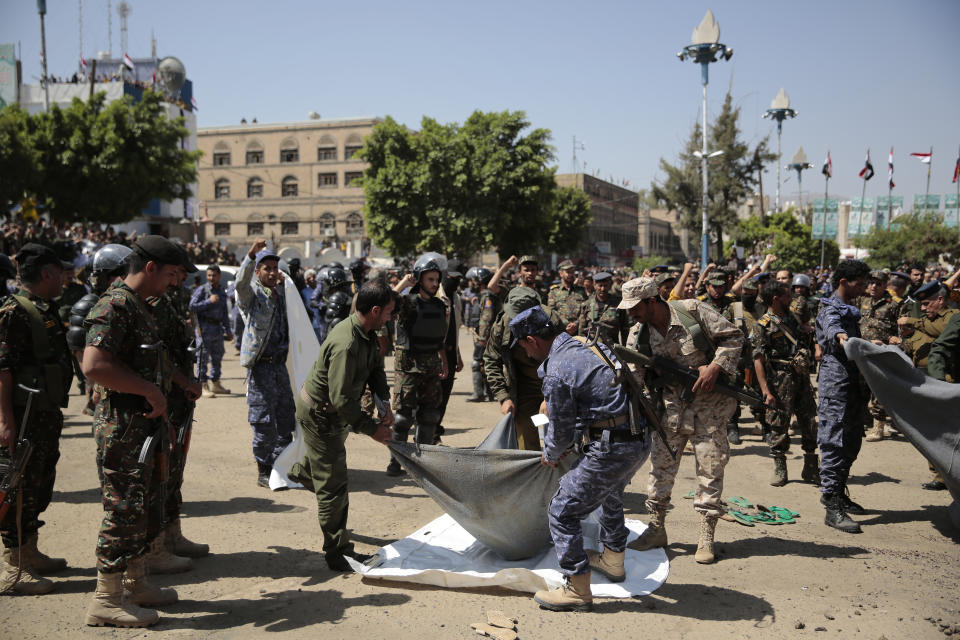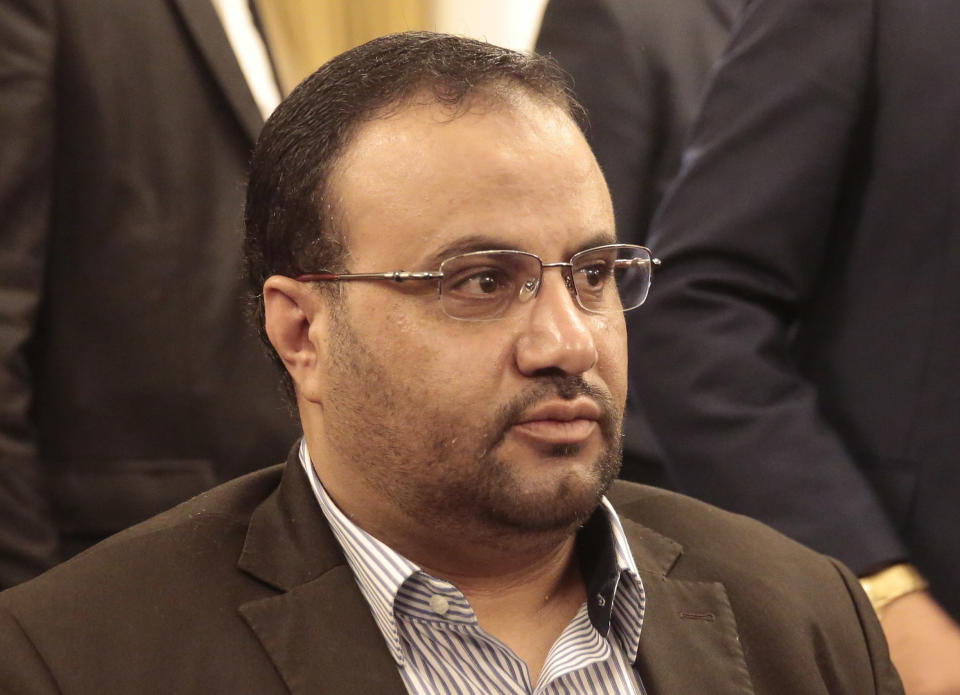Yemen Houthi rebels execute 9 over senior official's killing
SANAA, Yemen (AP) — Yemen’s Houthi rebels executed on Saturday nine people they said were involved in the killing of a senior rebel official in an airstrike by the Saudi-led coalition more than three years ago.
The execution took place by firing squad and was held in public, early in the morning in the rebel-held capital of Sanaa. The Iranian-backed Houthis later distributed photos apparently showing the killings. Hundreds of people attended the execution, mostly Houthis and their supporters.
The executions took place despite repeated calls by rights groups and lawyers to stop the killings and retry the suspects. They said the trial, held in a rebel-controlled court where the nine were convicted and sentenced to death, was flawed.
The nine were among more than 60 people the Houthis accused of involvement in the targeted killing of Saleh al-Samad in April 2018. Former President Donald Trump was also accused, according to court documents obtained by The Associated Press. Also accused were top Western, Israeli and Gulf Arab officials.
The Houthis charged the nine with spying for the Saudi-led coalition, which has been waging war against the rebels for years in an effort to bring back Yemen's internationally recognized government to power.
Al-Samad, who held the post of president in the Houthi-backed political body, was killed along with six of his companions in an airstrike by the Saudi-led coalition in the coastal city of Hodeida.
The nine, including a 17-year-old boy, were arrested months after al-Samad’s killing. They were forcefully disappeared for months and held in undisclosed places where they suffered inhumane treatment, according to Abdel-Majeed Sabra, a Yemeni lawyer representing one of the people executed.
The executions were also broadcast on big screens in Sanaa's Tahrir Square. The executions and the public display caused outrage across the country, including among the relatives of the nine and also in Sanaa, where people usually refrain from criticizing the rebels for fear of reprisals.
“I can’t believe what has happened. This is madness and a crime,” Abdel-Rahman Noah, a brother of one of the executed, told The Associated Press.
Another relative said she did not expect the Houthis to go through with the executions. “We were shocked. ... We thought that they were just threatening," she said tearfully, speaking on condition of anonymity for fear of reprisals from the rebels.
The rebels did not respond to requests for comment.
The nine wore sky blue prison garb with their hands bound behind their backs. Masked guards led them to an open area and forced them to lie down on their stomachs. Another officer with a rifle shot them to death in their backs.
One of the executed appeared scared while awaiting his turn to be shot; an armed Houthi was seen holding him tight, perhaps so that he would not fall.
Sabra, the lawyer, said the Houthis later allowed relatives to take the bodies away for burials. Eight were taken to their hometown of Hodeida while the ninth was buried in Sanaa.
Several rights groups, including the U.S.-based American Center for Justice, which follows human rights abuses in Yemen, had called Friday for the U.N. to intervene to stop the executions. The groups said the trial had “included flagrant violations of fair trial guarantees and depriving individuals of providing sufficient defenses.”
Also on Saturday, at least six people from the same family were killed when a suspected airstrike by the Saudi-led coalition hit their vehicle in an area between the provinces of Shabwa and Bayda, according to government officials and tribal leaders.
There was no immediate comment from the Saudi-led coalition. The officials spoke on conditions of anonymity because they were not authorized to brief reporters and the tribal leaders spoke anonymously, fearing reprisals.
Yemen has been embroiled in a civil war since 2014, when the Houthis swept across much of the north and seized Sanaa, forcing the internationally recognized government into exile. The Saudi-led coalition entered the war the following year on the side of the government.
The stalemated conflict has killed more than 130,000 people and spawned the world’s worst humanitarian crisis.
___
Magdy reported from on board the Geo Barents in the Mediterranean Sea.




